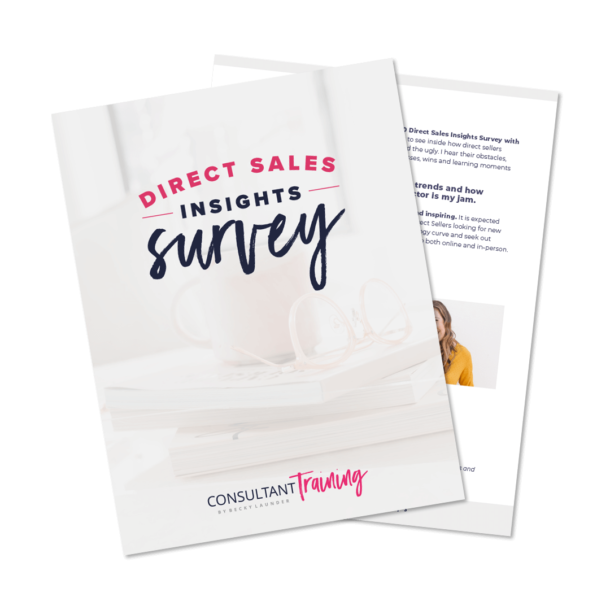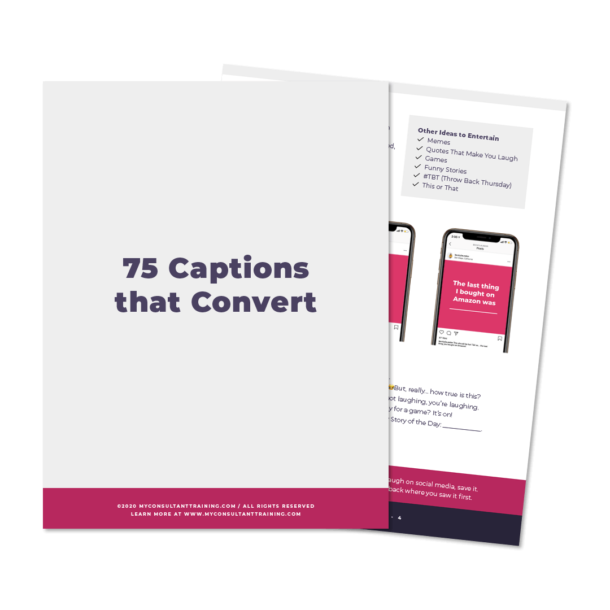FREE Income and Expense Tracker
Keeping track of your income and expenses throughout the year is crucial to see how your business is performing. Doing it regularly (I recommend monthly) also makes it easy during tax time because you will already be prepared! To help you get organized we’ve created a direct sales tracker that includes an Income and Expense worksheet and mileage tracker. This is the same spreadsheet I used when I started my direct sales business. Use the form below to download our direct sales tracker then checkout the video for a quick overview and tutorial on using the spreadsheet!
Also checkout our related post about managing your business finances and preparing for taxes!
Free Income and Expense Tracker!
Enter your first name and email and I’ll send you our free income and expense tracker to help you get your business finances organized and ready for taxes!
Get a tutorial of the Income & Expense Tracker beginning at 6:13 in the video below.
Changes:
2/4/2021 – Update some of the category descriptions.
2/4/2019 – Fix the check formula at the bottom to include all the Misc sub-categories.
3/5/2017 – Add additional sub-categories under Other Misc. Expenses. Add additional clarifications in the Categories Descriptions tab. Include new categories in drop-down lists and tax filing section of Income&Expenses tab.







What is the going rate for logging hours for online work?
Hi Shelha – Can you elaborate some more on your question? I’m not quite sure what you mean.
Hello! Just started with Usborne and wanted to download this through Google Sheets because I do not have excel but I am unable to download it to google sheets? Would you be able to tell me how to get it through google sheets?
Hi Sarah – To use it with Google Sheets go to your Google Drive and click New –> File Upload then select the Income and Expense tracker file. Then within Google Drive do a right-click on the file then Open With –> Google Sheets. Let me know if you have any trouble using it that way!
I received the income tracker but I am unable to edit it. It asks me to view or download on my Mac and apple phone. I tried opening both ways and still unable to edit. Is there something I might be doing wrong? Do I need excel program or can I open another way?
Hi Cassie – If you don’t have Excel my recommendation would be to use Google Sheets. It’s free and you’ll be able to open the file with that.
Thank you for getting back to me so quickly. I was able to make it open somehow using Googlesheets.
I just have a couple questions on entering information….
1. Do I need to go back and enter my weekly income (or every time I was paid) or can I just enter my W2 as the income for the year?
2. When I would close my hosts parties, I would usually have them pay me via Venmo, PayPal, Facebook messenger to avoid credit card number exchange. Because I did it this way for most of my hosts, do I have to record every time I did this by entering the payment using my credit card, then the payment to me by customer for the amount they paid? For example, I closed HOST party and total amount due to close party was $100.00. Since I am able to apply the promotion I offered to my host for their party or “FREE BOOKS” of say $15.00, the HOST A total due was $85.00 which they then paid me via PayPal. Once payment was received, I then paid $100.00 with MY credit card to Usborne to close party. $100.00 includes shipping charges, tax, books etc. Or what would be the best/easiest way to enter this information.
3. When I purchased my own books I use for showing in my parties, or having on hand for customers who wanted to stop by and browse in person, or give away as prizes to winners of drawings in VIP etc. which category do I need to log the purchase of the books?
4. When I enter my cell phone and internet expense, do I list a percentage or the actual amount as the expense $ and let my tax account know how much was used for business vs personal?
5. Will I need to have printed receipts of everything or just give my tax accountant a print out of the excel sheet?
Thank you!
Hey Cassie – Below are my thoughts on these. Just know, I’m not a tax professional so I always recommend reaching out to a CPA or other tax professional to get help on your specific situation.
1. You do not need to go back and do it weekly. You need to report your income for the whole year so if you have it for the whole year or another interval that is fine. W2 income wouldn’t be reported for your business as that is for employee wages. You should have received a 1099-NEC for any commission you received from your parent company. Income would also include any money collected from in-person sales, events, etc. Essentially any money you received related to your business is income.
2. You don’t need to record every transaction. If you can download a report that has the income for the whole year in it you could just use that and enter the total in the Income & Expense Tracker. Your expenses are supposed to be categorized in the various buckets like the Income & Expense Tracker has. You don’t necessarily need to enter every transaction in the Income & Expense tracker but you should retain receipts/invoices for all your expenses and then you could just enter one or a few lumped transactions for each category if that’s easier. I typically recommend people enter their income & expenses at least monthly since its easier to stay on top of it than trying to fill it in only at the end of the year.
3. The purchase of books would be an expense to your business so those expenses should be included in the totals you report for taxes and categorized appropriately. Similar to 2 you don’t have to enter every individual transaction and you can lump them together to categorize them if that’s easier.
4. These shared personal/business expenses would typically have only a percentage entered as a business expense. I believe you are supposed to estimate how much is used as personal and how much is used for business and only record the business percent of the expense for your business. I’d ask your accountant how they want to handle that.
5. An accountant generally just files your taxes so they would take your Income & Expense tracker and use that to file the taxes. A bookkeeper would be the one that takes all your receipts and statements and organizes them in the Income & Expense tracker (or software like Quickbooks). Sometimes accountants do both tax filing and bookkeeping, though. For most direct sales businesses, they are small enough where using the Income & Expense Tracker works and most direct sellers are doing the bookkeeping themselves.
Thank you so much for explaining this. I didn’t expect to earn as much as I did so I didn’t get in the habit of saving every thing. I noticed that my totals are not matching on the excel sheet you provided even though manually calculating they do so something is wrong with the way it is set up and I can'[t figure out what it is. Do you have an updated version of the excel sheet fixing the total error (income – expenses)?
If you want to send me your file (or share it with me if its a Google Sheet) I can take a look and see what happened with the formulas. You can send it to (or share it with) [email protected].
Jeremy,
How would you classify materials 9surfaces, ribbon, florals, misc. embellishments, etc.) used to demo your product, used in workshops, etc. Would that be Cost of Goods Sold or Supplies?
I think supplies is probably the most appropriate for something like that.
I would like to get the expense tracker. I live in Louisiana and was a Color Street stylist.
Hi Amanda – Just fill out the form above and you’ll be emailed the Income and Expense tracker.
Hello, I received a 1099 with box 7 marked saying I purchased more than $6000. Many of my purchases were for friends and family at my discount rate so I did not make money off of them. How would I include that to represent the purchases, but to also show what I actually made? Thanks!
Hi Jessie – Box 7 is the amount of income/compensation you received from whoever provided you the 1099. It isn’t purchases/expenses you’ve made but would be commissions, overrides, etc. paid to you. That compensation paid to you does need to be included on your tax return as income. You will also include your expenses on your tax return and those expenses will offset the income. The amount of tax you owe is based on how much profit you made (income minus expenses). So for example if your company paid you $6,000 in commissions but you paid $5,000 to acquire the product you sold you’ll end up paying taxes on the $1,000 profit you made. The Income and Expense tracker can help you get your finances organized to prepare for filing your taxes. You can also check out this post which has more information about taxes. I’d also recommend consulting with a tax professional or CPA if you aren’t sure as they can help with your specific situation.
Thank you for this awesome resource! What category for expenses would you use for website fees?
Hey Kassi – I’m glad you like the Income and Expense tracker! I’d put that under “(Misc) Computer and Software”.
What category would you input the fees acrued from utilizing Paypal or Square?
I’d put merchant fees in Cost of Goods Sold (COGS).
Hi! Thank you for the spreadsheet… I am a new consultant to PixieLane. I was wondering for the income, every time I make a sale I should add it to the worksheet or just add it all up and do it once a month? Silly question, when we purchase the clothing that will go under expense, correct?
Hi Julie – On the sales it is up to you. If it is valuable for you to see every sale broken out like that in the spreadsheet then you can add every sale, but if just adding the total for the month is good enough then I think that would be OK too. It will be more work to put every sale into the spreadsheet so you’ll have to decide if the extra work is worth it to you. You are correct the cost of clothing is under expenses. The cost to purchase the clothes you sell would be categorized as COGS (cost of goods sold).
I downloaded the tracker, but it isn’t giving me the drop down list of the different categories for expenses.
Hi Angela – I haven’t heard of this issue with the tracker before. What program are you using to open/use the tracker?
I’ve requested a couple times to download the tracker, but haven’t gotten an email yet. Am I just being impatient?
Hi Carin – It should only take a minute or two. Have you checked your spam folder? If you still don’t have it let me know and I can send it through a separate email.
Aha! It was hiding in the spam folder! Thank you!!
Glad you got it! Thanks for following up.
I believe that this tracker would only apply to US Residents correct? I am in Toronto Canada.
Hi Colleen – The Category column probably only makes sense for US taxes but the income and expense tracking tables can be used by anyone. You can edit the categories on the Category Descriptions tab to make them applicable to Toronto taxes. The values in the Category column on the Income and Expense tracking tables are pulled from the Category Descriptions tab.
Thank you for the quick reply I will grab this and play with it. If anything it is a foundation for sure.
Thanks again for your help, very grateful for the resources
Hi there! I’m so happy that I located y’all and had a downloadable spreadsheet to use for home business. I get confused with the sales tax and if it should it be recorded separately for tax purposes? Your spreadsheet doesn’t take that into account and you put in the total amount including the sales tax. Do we claim sales tax on our Schedule-C?
Thank you so much for your help.
Robin
Hi Robin – All income you collect including sales tax gets reported on Schedule C Line 1. Most of our audience on this site are consultants in direct sales (or network marketing). I’m not sure if you are in that industry, but for direct sales consultants, they pay sales tax when they purchase product from the parent company and then the parent company is responsible for paying sales tax to the local tax agency. When the consultant sells product they have on hand they will charge sales tax to reimburse themselves for the sales tax they initially paid when they purchased the product, but the consultant does not need to pay sales tax to the local tax agency since the parent company handles that.
If you are not a consultant with a direct sales company and have your own business with your own products, you would be charging sales tax and making tax payments to your local tax agency throughout the year. Those payments would be an expense to you and reported in Line 23 on Schedule C. It will offset the amount of sales tax you included in your income in Line 1 so the net effect on your profit will be $0.
Does that make sense and help? We also have some more info on this related post about managing your business finances and preparing for taxes.
Hi Jeremy… Thanks so much for the information and your guidance. I am a Consultant, so this makes total sense. I’m assuming then, that the same would go for shipping/handling fees? This would be reported too, since I pay for shipping to have products delivered to me?
That’s correct. Essentially all revenue you take in and all expenses (regardless if it is from sales, taxes, shipping charges, etc.) will get reported on your Schedule C.
Hi Jeremy,
I’m a new PixieLane consultant and I’m confused on collecting sales tax. I’m in NY and have literally just applied for a certificate of authority to collect sales tax. If I’m undertanding your response correctly, I do not have to pay/file the sales tax I collect to NY state? I can keep it as income and then of course report it as such when I file in April?
Thank you!
Liana
Hi Liana – PixieLane is set up as a wholesale model and HQ does not charge sales tax on consultants’ purchases when they buy inventory. Therefore consultants are responsible for obtaining their own business license, sellers permit and then charging sales tax when they make sales to customers and paying sales tax to the proper agency. Becky will shoot you a message and explain a little bit more.
Thank you for this great tool! Do you save it by month and then start a new page for the next month? How do you do that?
Hey Michelle – I’m glad you like it! Each month I would go in add that months income and expenses to your file. I would just keep adding to the same file and tab throughout the year so you just have one file and one tab. If you split the months up in to separate tabs or files you will end up needing to sum them all together at the end of the year for taxes anyway. Hope that helps!
Hi Jeremy,
I noticed by reading some comments below, that you have made a correction. I was wondering what my problem was! Would it be possible for you to email me an updated version?
Other than that, I am loving this fantastic tool! Thank you so much!
Hi Michelle – I haven’t made any updates since the 2/4/2019 version. You can get the latest file emailed to you by filling out the form up in the blog post.
Your update was just after my download in Jan 2019. I just wasn’t sure about filling out the form, since I had already done so previously. Will do it now. Thank you so very much!
Sounds good! Let me know if you have any questions using it!
I had a big CFAC fundraiser this year and I’m not sure what to do with it. Does it go into COGS? Do I use the full value of the cards or just the amount that the organization paid? Then the money collected goes in my gross receipts?
(I have one more question about COGS- Do I need to total up all of the orders placed through my ecommerce or only orders that I placed that people paid for through square or PayPal?)
Thanks
COGS would be all the expenses you incurred for books. So if you personally bought $5000 worth of CFAC boxes (with your own credit card, cash, etc) that $5000 would be in your COGS category for taxes. Then when you sell those boxes the money you collect would go in the income section. If people are ordering directly from your ecommerce website you wouldn’t have any cost associated with that. UBAM ships the products directly to your customers so UBAM incurs all the costs for those sales. UBAM will pay you a commission for those orders and you will include those commissions in your income. Only things you actually pay for out of pocket would be reported in your expenses. Hope that helps. Let me know if you have any other questions!
How do you track the sales tax charged when selling books at an event in order to pay the correct sales tax back to the government? In Wisconsin any direct sales consultants are required to charge sales tax as well as obtaining a sales tax permit because we have to pay the sales tax back to the state of Wisconsin quarterly or at the end of the year. My daughter is an Usborne consultant and I am assisting her with completing her taxes. She told me when she places an order for books for an even Usborne charges her approx 5.6% tax for those books. She then charges any customers at the event approx 5% sales tax for their purchase. In Wisconsin some counties charge an additional .5 or .6% so she is required to recognize that additional amount when having an event in the specific county. She checked with another team leader and was told because she pays the 5.6% in taxes to purchase the books initially and she charges the sales tax at the event, she is not required to record to the state the sales tax she received on the sales from the event. Is this true? Please clarify and elaborate more on this subject because I want to complete her taxes properly without any issues with her being audited and they need to be completed before April 15th. Any help in this matter is greatly appreciated. Thank you.
Hi Trudy – Consultants pay sales tax to Usborne when they buy books and Usborne is responsible for sending that sales tax to the proper agency. When you sell books at an event you charge sales tax to essentially reimburse yourself for the sales tax you paid to Usborne. As a consultant you should not need your own seller’s permit. Usborne should have one on file for your state so you can check with home office if you need it.
Usborne charges sales tax and pays the agency based on where Usborne is shipping the books. When you go to your event you may be in another jurisdiction and it may have a different sales tax rate so this is where it gets weird. If the sales tax rate is the same as our home rate, then we charge our regular sales tax rate and end up getting fully reimbursed for the sales tax we paid Usborne. If the sales tax rate is lower at the event location, then we charge the local tax rate so customers do not get upset at being charged the higher sales tax rate. We end up having to eat the difference between the sales tax we paid to Usborne and the lower local sales tax we collected at our event which is a bummer. In this case I think we could go back to Usborne for a credit and explain where the books were sold and how much tax we collected and Usborne would adjust the taxes they have to pay out accordingly, but this seems like a pain so I’ve never pursued it.
I’m not an accountant or tax professional so don’t take this as legal advice. You should consult a professional if you are concerned about it. We are also in California so I’m not familiar with any Wisconsin specific rules.
There was an article on a Texas state website that discussed this question. This was for Texas but I think it is similar in other states. http://aixtcp.cpa.state.tx.us/opendocs/open15/9807763l.html
Thank you for such a quick response.
Another question I have is when books are purchases via consignment and if treated as a book fair where you could receive 50% of the books for free. Is the sales tax charged based on the full total not including the discounted books or is it charged after the discount. An example would be $500.00 books ordered on consignment (book fair) the sales tax Usborne charges would be $28.00 (5.6%) or would it be only be $14.00 recognizing the 50% discount?
For book fairs you get charged sales tax on the full retail books. There is no sales tax on the free books. This is true regardless if the free books are for a school/organization or being reconciled.
I’m not seeing the form to download this….is it just me??
Hi Paula – Sorry you are having trouble with the form. I emailed you the income and expense tracker. If you didn’t get it, let me know!
Jeremy, Thanks so much for this income/expense spread sheet! I think I’ve got the hang of it…except, after I input all my info (at the bottom of the page, it says Total (should match INCOME-EXPENSES above). Well…my 2 numbers do not match. I am off by $77.53. Any ideas? I am a new consultat and I started in July of 2017, so I am totally new with all this new 1099 tax info. I have added up all my numbers and they seem to all add up. Thanks for your help.
Hi Meredith – I know you may not want to share all your financial info, but would you be willing to send me the file you are working with? It would make it easier for me to troubleshoot what’s going on. If you are OK with it send it to me at [email protected]. Thanks!
Update 3/3: I looked into this a little bit and it may be that the category column for one or more income or expense lines might not have a category selected. The table at the bottom is looking at the category column when getting the totals and only adds it to the total if the category in the income or expense line matches a category in the bottom table.
Loving this resource as well but I am having a similar issue. I did the math and it looks like the bottom total is not including the expenses that were categorized as (MISC) such as booth expenses and training expenses. Any ideas?
Hi Brianne – You were right that some of the MISC expenses were not being included in the formula that was doing the check at the bottom. I’ve fixed the formula and released a new file so it will be correct for anyone that downloads in the future. I’ll also send you an email with the new file in case you want to transfer your data over. Good catch and thanks for letting me know!
Hello, I’m a Partylite consultant, can I use this or is this for a certain company?
Hi Chrystal – The income and expense tracker is generic and can be used for tracking income and expenses for any business.
How do I access the tracker, everything I click on leads me back to this forum
There should be a form up in the post to put your name and email address then the tracker will get emailed to you. If you don’t see the form shoot me an email ([email protected]) and I’ll send it to you.
Can you consider the books you offer to the hostess as a business expense? (the 35% party bonus books)
Thanks!!!
Yes, I would consider that a business expense. It is an expense you are incurring to make those sales. I don’t see that as any different than purchasing other books you re-sell at events or in-person. I’m not a CPA though so consult your tax professional if you want to be sure.